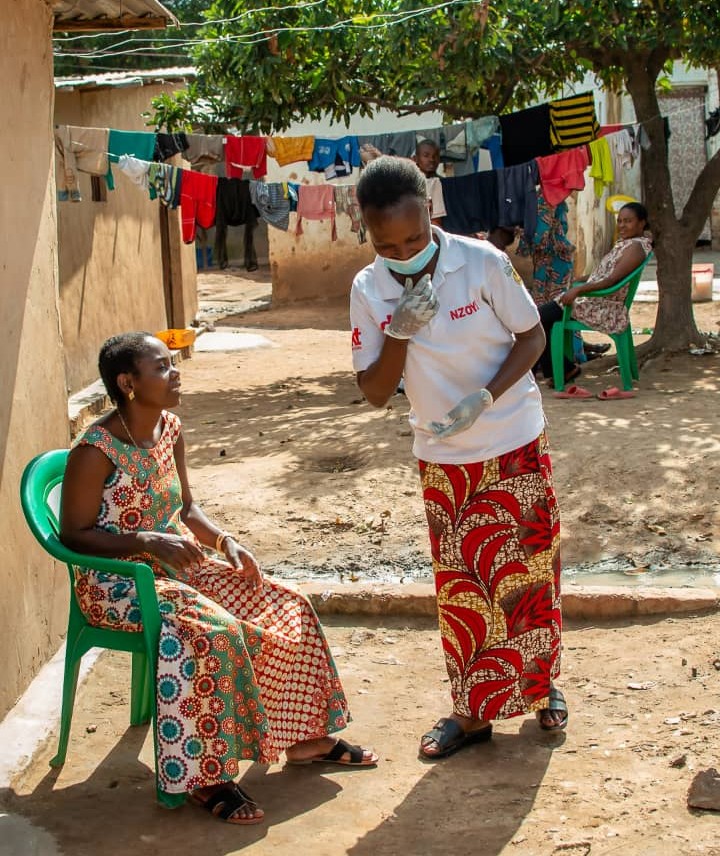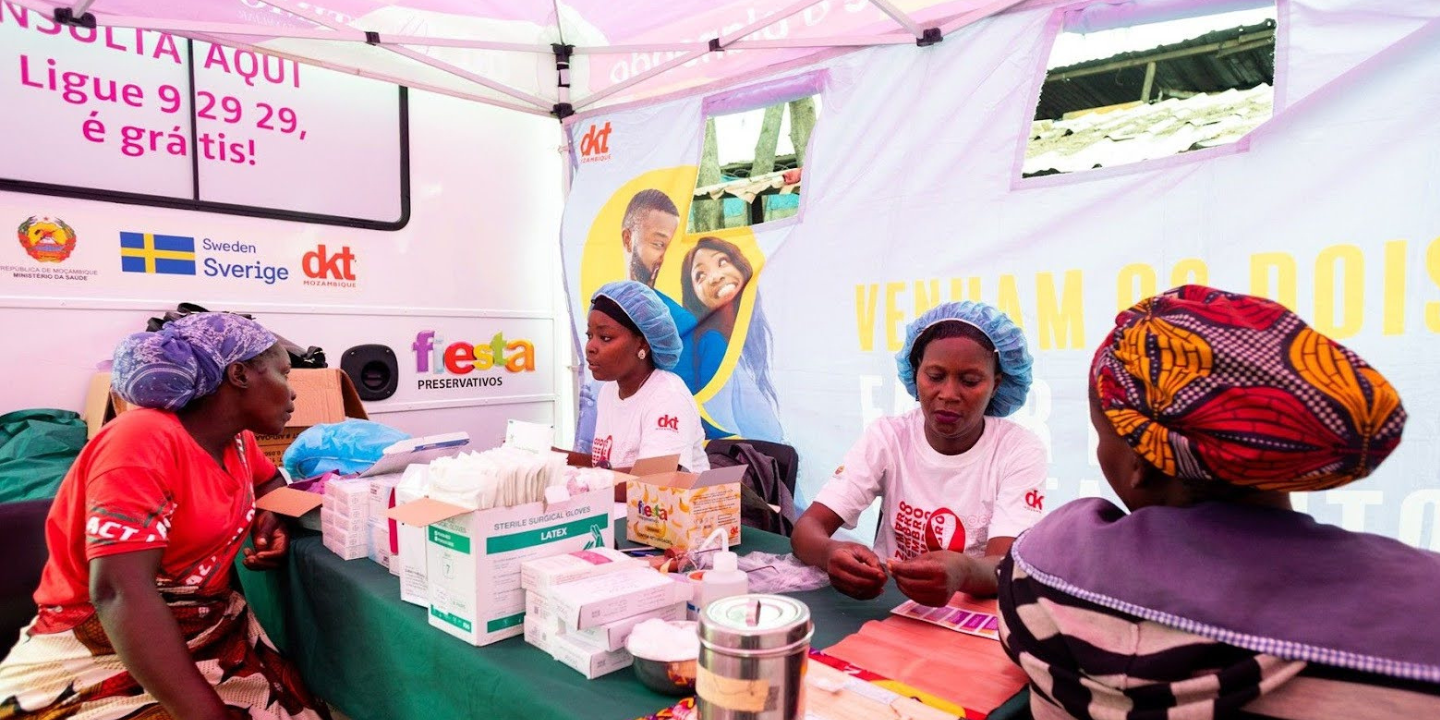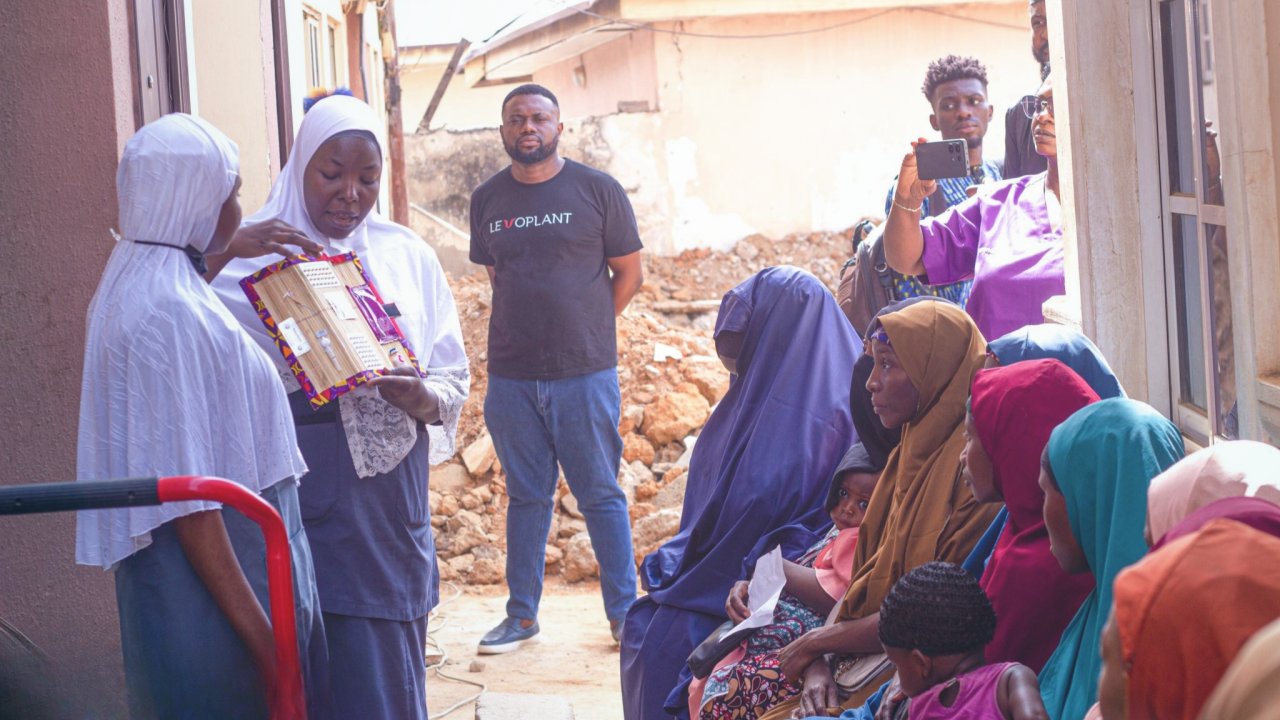Focus Areas
Deliver High-Quality Products & Care to Vulnerable Populations
DKT’s mission centers around making contraception, safe abortion, and HIV/AIDS prevention products affordable and accessible to low-income and marginalized populations. One of the fundamental ways DKT supports vulnerable populations is by offering affordable products backed by strong brands, so individuals do not feel like they are receiving charity.
Our commitment to vulnerable populations extends further. DKT has a long history of working with the LGBTQIA community and people who sell sex to increase awareness about HIV prevention. DKT also supports youth, people with disabilities, refugees, internally displaced people, and other groups through service delivery and education.

Social Marketing
DKT harnesses the power of the private sector to meet people where they are with affordable, high-quality products. This includes pharmacies, brothels, and nightclubs (and hospitals, clinics, and supermarkets).
Service Delivery
DKT provides information and care through clinic networks and outreach. Outreach services bring highly subsidized or free products to communities that need them most, including refugee camps, urban slums, and rural villages.
Capacity Building
DKT trains lower-cadre providers, including midwives, traveling nurses, and drug store attendants, to broaden our reach of people who do not come into contact with the traditional healthcare system.
Sexual and Reproductive Health is a Human Right
DKT believes that everyone should be empowered and enabled to control their reproductive destiny. DKT is committed to making care accessible to all by breaking down barriers based on ability to pay, sexual orientation, and other dimensions of identity that make care less accessible.
Our business uses the efficiency of the private sector and commercial marketing techniques improve uptake of sexual and reproductive health products. But we recognize that more targeted approaches are needed to support marginalized communities. Our sales representatives are committed to bringing reproductive health supplies to the last mile. DKT trains public sector providers to ensure their clientele receives accurate information on the latest contraceptive technology. Our community activists educate prospective consumers on contraception. Outreach teams provide services directly to underserved communities. These efforts are supported by our partnerships with local organizations and influencers who have established relationships with disenfranchised groups.
People Living in Poverty
In the Democratic Republic of the Congo, DKT’s traveling nurses (“Bees”) deconstruct obstacles to care by going door to door to provide information and products to people living in poverty. The Bees are nurses by trade, so they are able to counsel clients on a range of contraceptive methods, distribute pills and condoms, and even administer injectables like DMPA-SC.
LGBTQIA+ People
In Mozambique, DKT runs an online, sex-positive talk show, “Prudence Comekie,” to normalize conversation on LGBTQIA+ issues and broadcast information about HIV prevention. DKT works with LAMBDA, a Mozambican association advocating for the rights of the LGBT community, to feature their members on the show.
Youth
Many young people face stigma when accessing reproductive health care, so DKT tries to reach them where they are with behavior change campaigns. In Kenya, DKT partnered with popular Gengetone artists on #JipinNaKiss campaign, creating an anthem about safe sex practices, prominently featuring Kiss condoms.
Commercial Sex Workers
As one of the largest providers of condoms in the world, DKT has an important role to play in preventing HIV transmission. In Ethiopia, DKT’s Wise-Up HIV drop-in centers support sex workers by providing affordable testing, condoms, and sexual health advice.
Rural Communities
Our Janani program has a long history of supporting people in rural communities through our partnership with the Government of India. Janani expanded this program by offering services via mobile clinics, equipped with the latest medical technology, to bring essential medical services directly to communities in remote locations to ensure no one is left behind.







DKT International Doubles FP2030 Commitment to $2 Billion by 2030 amid Global Donor Funding Declines